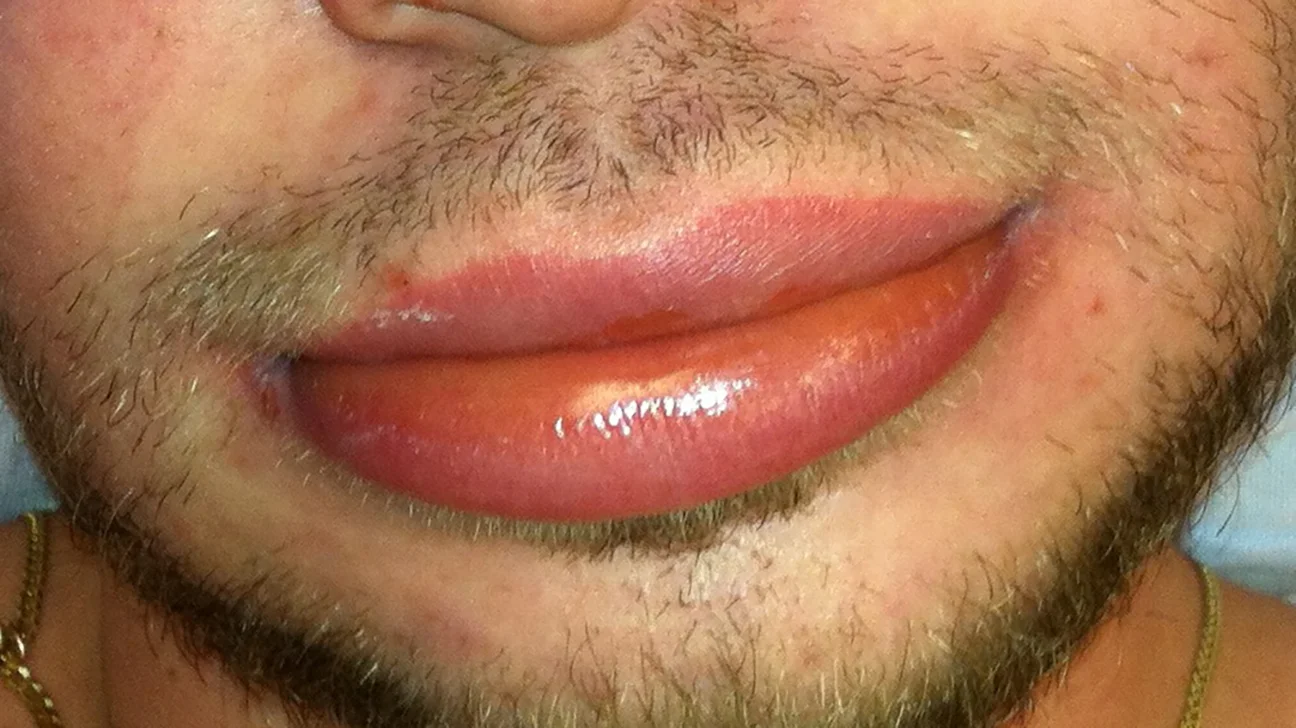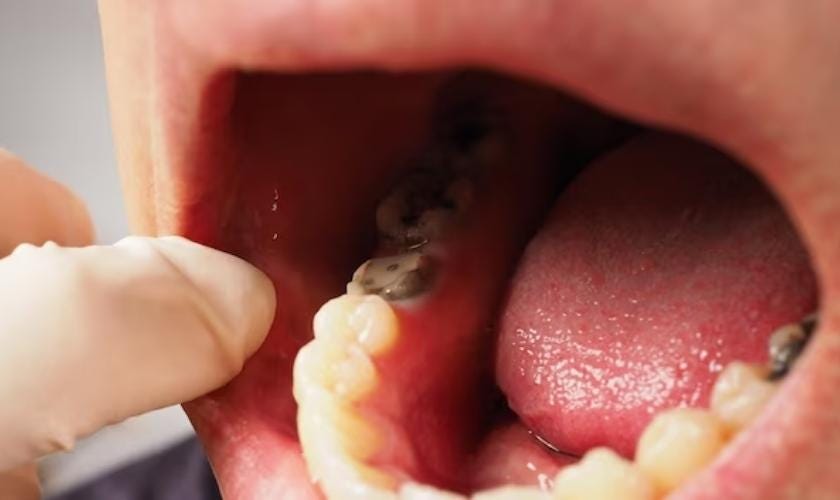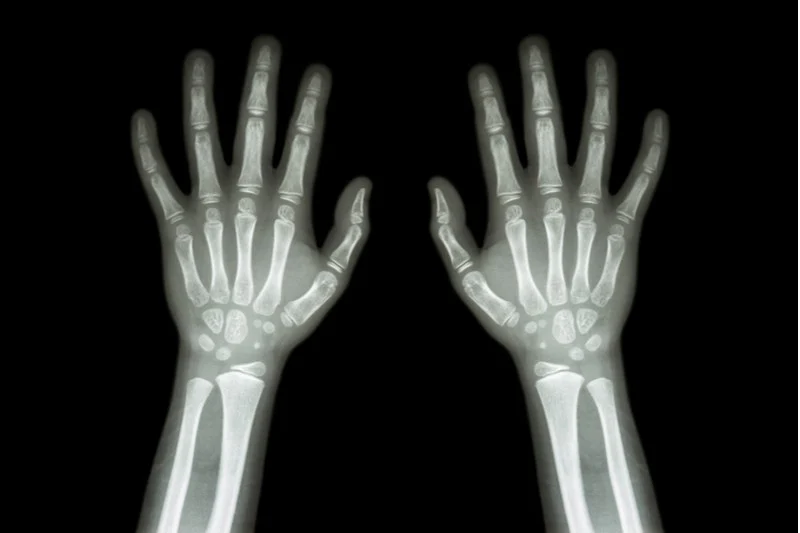Ever wonder why your lips might look a bit bigger when you wake up? Well, it’s actually pretty normal. While you sleep, fluid gathers in your face, including your lips. This happens because you’re lying down and not swallowing as much. Changes in room temperature and humidity can make it more noticeable.
Not drinking enough water can also make your lips puffier in the morning. Some foods, allergies, or how you sleep might also play a part. Usually, it’s nothing to worry about, but if your lips stay swollen a lot, it’s a good idea to see a doctor. Drinking water, eating well, and getting good sleep can help keep your lips normal in the morning.
Why do lips swell in the morning?
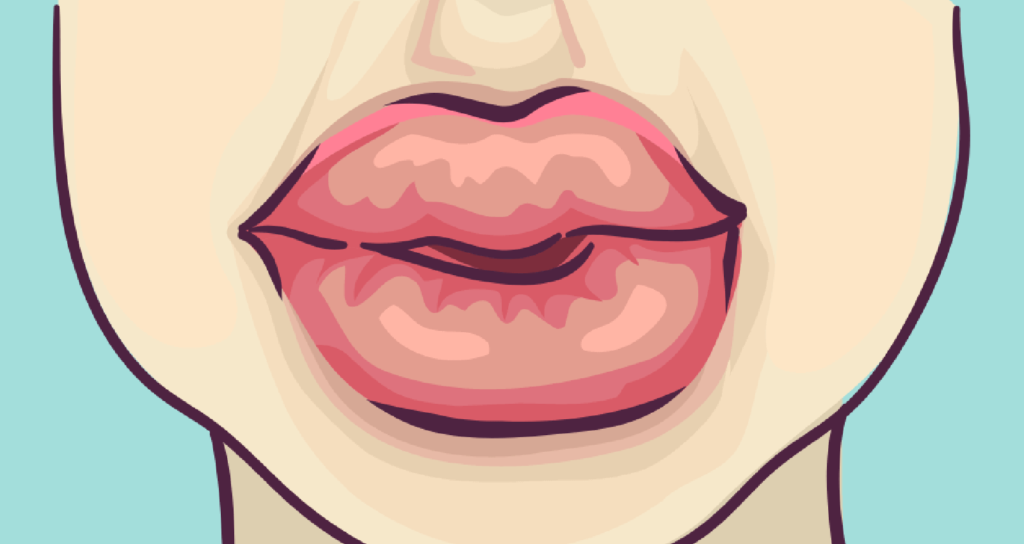
Lips may swell in the morning due to various factors, both normal and influenced by lifestyle or health conditions
Fluid Redistribution: During sleep, the body’s position and gravity influence fluid distribution. Fluid tends to accumulate in facial tissues, including the lips, leading to temporary swelling.
Lymphatic System Activity: The lymphatic system, responsible for draining fluids, operates more slowly during sleep. This reduced efficiency can contribute to fluid retention in the lips.
Temperature and Humidity: Environmental factors play a role. High temperatures and humidity can cause blood vessels to dilate, increasing blood flow and potential swelling. Conversely, cold temperatures may constrict blood vessels, reducing swelling.
Dehydration: Insufficient water intake can result in overall dehydration, affecting the moisture levels in the body and potentially leading to swollen lips.
Sleep Position: The way you sleep can impact blood circulation. Certain positions may cause uneven blood distribution, influencing the appearance of facial features, including the lips.
Allergies: Undiagnosed or unmanaged allergies can cause morning swelling of the lips. Allergic reactions may lead to inflammation and fluid retention.
Diet: Consuming foods high in salt or having food sensitivities can contribute to fluid retention and morning swelling.
Medication: Some medications may have side effects that include facial swelling. Consult your healthcare provider if you suspect your medication is causing this.
Underlying Health Conditions: In some cases, persistent or severe morning swelling could be a symptom of an underlying health condition, such as angioedema. Seeking medical advice is advisable for a proper evaluation.
How do diet and hydration affect morning lip size?
Hydration Level
Proper hydration is important for maintaining the body’s fluid balance. When dehydrated, the body may retain water, leading to morning puffiness in various areas, including the lips.
Well-hydrated skin and tissues are less prone to dryness and swelling. Drinking enough water throughout the day supports healthy moisture levels, reducing the likelihood of waking up with swollen lips.
Sodium Intake
Sodium, a key component of salt, plays a significant role in fluid balance. High sodium intake can disrupt this balance, causing the body to retain water and leading to noticeable swelling, including in the lips.
Excess sodium draws water into tissues, and this fluid redistribution can contribute to the puffiness experienced in the morning.
Foods That Cause Swelling
Many processed foods, like packaged snacks and fast food, contain high levels of sodium. Regular consumption can contribute to chronic fluid retention and morning swelling.
Elevated sugar intake can promote inflammation and water retention, potentially exacerbating morning lip puffiness.
Foods That Reduce Swelling
Fruits and vegetables with high water content, such as cucumbers and watermelon, contribute to overall hydration. Including these foods in the diet may counteract morning lip swelling.
Berries, fatty fish, and leafy greens contain antioxidants and omega-3 fatty acids, which have anti-inflammatory properties. Consuming such foods may help reduce general inflammation, including in the lips.
Alcohol Consumption
Alcohol is a diuretic, meaning it increases urine production and can lead to dehydration. Consuming alcohol, especially in excessive amounts, the night before may contribute to waking up with swollen lips.
Caffeine Intake
Caffeine, found in coffee, tea, and some sodas, also has a diuretic effect. Monitoring caffeine intake, particularly in the evening, can help manage hydration levels and minimize morning lip puffiness.
Balanced Nutrition
A diet rich in a variety of nutrients supports overall health. Nutrients like vitamins and minerals play roles in various bodily functions, including those that influence fluid balance and inflammation.
Individual Sensitivities
Some individuals may react to specific foods with localized inflammation, affecting the lips. Identifying and avoiding trigger foods through an elimination diet or allergy testing can be beneficial.
Can sleeping habits contribute to swollen lips?
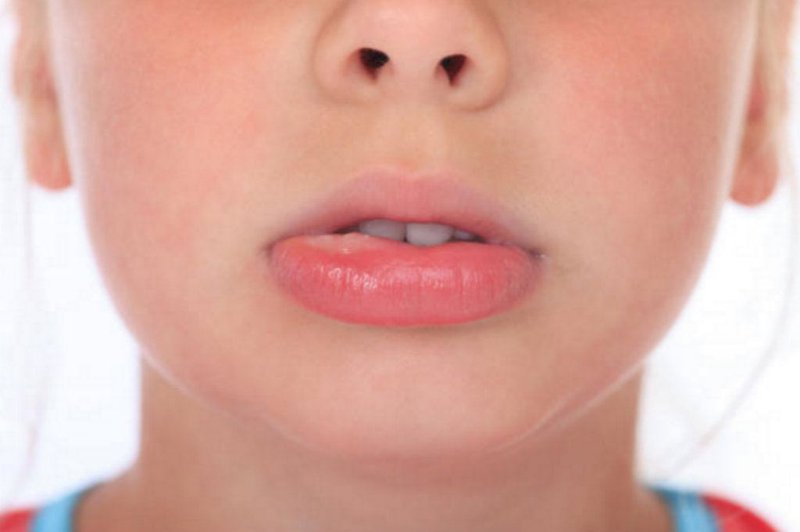
Yes, sleeping habits can contribute to swollen lips. Sleeping in a position that restricts blood flow or causes fluid retention, such as sleeping on your stomach or with your face pressed against the pillow, may lead to temporary swelling in the lips due to changes in circulation and fluid dynamics.
Sleeping with your face pressed against the pillow or in a way that compresses the lips can impede blood circulation and contribute to fluid retention. This compression can result in temporary swelling upon waking.
When lying flat for an extended period, such as during sleep, gravity can affect fluid distribution in the body. Fluid may accumulate in facial tissues, including the lips, leading to morning puffiness.
Certain sleeping positions can impact breathing patterns. Mouth breathing, especially if habitual during sleep, may cause the lips to dry out and potentially become swollen.
In cases of sleep apnea, where breathing temporarily stops during sleep, there can be changes in facial features upon waking. Reduced oxygen levels and altered breathing patterns may contribute to morning facial puffiness, including in the lips.
Sleeping on the stomach may lead to facial pressure and distortion, affecting blood circulation and contributing to the appearance of swollen lips.
The material of the pillowcase can play a role. Rough or irritating fabrics may cause mild irritation, leading to localized inflammation and morning lip swelling, especially in individuals with sensitive skin.
Poor quality of sleep and sleep deprivation can affect various physiological processes, including those related to fluid balance and inflammation. This, in turn, may contribute to the likelihood of waking up with swollen lips.
Individual variations, including facial anatomy, skin sensitivity, and overall health, can influence how sleeping habits impact the appearance of the lips in the morning.
Are allergies a factor in morning lip swelling?
Yes, allergies can be a factor in morning lip swelling. Allergic reactions to certain substances, such as allergens present in cosmetic products, foods, environmental factors, or medications, can lead to localized inflammation and swelling of the lips.
Cosmetic Products
Lip balms, lipsticks, and other cosmetic products applied to the lips may contain allergens such as fragrances, preservatives, or dyes.
Allergic contact dermatitis can occur when allergens in cosmetic products come into contact with the lips, leading to redness, itching, and swelling.
Food Allergies
Certain foods, including nuts, shellfish, citrus fruits, and food additives, can trigger allergic reactions affecting the lips.
Some individuals may experience cross-reactivity between certain foods and environmental allergens, leading to symptoms such as lip swelling.
Environmental Allergens
Allergens from the environment, such as pollen, dust mites, and pet dander, can lead to allergic reactions and swelling when they come into contact with the lips.
Medications:
Some medications, either applied topically or ingested, may contain allergens that can cause adverse reactions, including lip swelling.
Metal Allergies:
Allergies to metals, particularly nickel found in jewelry or dental materials, can manifest as lip swelling upon contact.
Identifying Allergens
Allergy patch testing, conducted by a dermatologist, can help pinpoint specific allergens causing reactions on the skin, including the lips.
For food-related allergies, an elimination diet involves removing potential allergens from the diet and gradually reintroducing them to identify the culprit.
Seeking guidance from an allergist can involve skin tests or blood tests to identify specific allergens triggering lip swelling.
Managing Allergies
Once allergens are identified, the primary management strategy involves avoiding exposure to those substances.
Antihistamines or topical corticosteroids may be recommended by healthcare professionals to manage symptoms of allergic reactions.
Individuals with severe allergies should have an emergency action plan, including the use of epinephrine, in case of severe allergic reactions (anaphylaxis).
What medical conditions cause swollen lips in the morning?
Several medical conditions can contribute to swollen lips in the morning. Some common causes include:
Angioedema
Angioedema is often related to an overactive immune response or genetics, causing deep swelling beneath the skin’s surface.
The condition can lead to morning swelling, and triggers may include allergens, medications, or stress.
Allergic Reactions
Ingesting foods like nuts, shellfish, or certain fruits can trigger allergic reactions that manifest as lip swelling, potentially more noticeable in the morning.
Allergens like pollen or pet dander can cause allergic reactions, leading to swollen lips upon waking.
Contact Dermatitis
Allergic reactions to ingredients in lip products, such as fragrances or preservatives, can cause contact dermatitis and result in morning lip swelling.
Infections
The herpes simplex virus, especially if recurrent, can cause cold sores and morning lip swelling after a night of interrupted sleep.
Dental Issues
Dental problems, such as abscesses or infections, can lead to localized swelling in the lips, which may be more pronounced in the morning.
Autoimmune Diseases
Systemic lupus erythematosus (SLE) is an autoimmune disease that can cause inflammation throughout the body, potentially leading to morning swelling, including in the lips.
Inflammatory responses associated with rheumatoid arthritis may contribute to morning swelling in various parts of the body, including the lips.
Fluid Retention Conditions
Conditions like congestive heart failure can result in fluid retention, leading to generalized swelling, including the lips.
Kidney disorders affecting fluid balance can contribute to morning lip swelling.
Hypothyroidism
Hypothyroidism, an underactive thyroid, can cause fluid retention and puffiness, potentially leading to swollen lips in the morning.
How to prevent waking up with swollen lips?
Preventing waking up with swollen lips involves adopting good sleep hygiene practices and addressing potential underlying causes. Here are some tips to help prevent morning lip swelling
Ensure proper water intake during the day to maintain overall hydration. Well-hydrated lips are less likely to experience dryness and puffiness in the morning.
Reduce the consumption of high-sodium foods, especially in the evening. Excess sodium can contribute to fluid retention and morning swelling.
Try sleeping on your back to minimize facial compression and promote optimal blood circulation. This can help reduce the likelihood of waking up with swollen lips.
Use a humidifier in your bedroom, especially during dry seasons. This helps maintain moisture levels in the air, preventing excessive dryness that can contribute to lip swelling.
Be mindful of potential allergens in your environment, such as dust mites, pet dander, or pollen. Minimize exposure to these allergens to reduce the risk of allergic reactions and swelling.
Use hypoallergenic lip balms and cosmetic products. Check product labels for potential allergens, and avoid those containing fragrances or preservatives that may cause irritation.
Maintain good oral hygiene to prevent dental issues that could contribute to lip swelling. Regular dental check-ups can help identify and address potential problems.
If you have known allergies, work with healthcare professionals to manage and control them effectively. This may involve allergy testing, avoidance strategies, or prescribed medications.
Keep your bedroom clean and dust-free to minimize exposure to potential allergens. Wash bedding regularly and use pillowcases made from hypoallergenic materials.
Limit alcohol consumption, especially close to bedtime. Alcohol can contribute to dehydration, which may increase the likelihood of waking up with swollen lips.
Go for smooth and hypoallergenic pillowcases to reduce friction and minimize the risk of skin irritation.
Consume a balanced diet rich in fruits, vegetables, and whole foods. These contribute to overall health, including proper hydration and inflammation management.
FAQ
Why do my lips get smaller throughout the day?
Throughout the day, talking, eating, and environmental factors can cause natural dehydration, making lips appear smaller. Staying hydrated is essential for maintaining lip health.
Why is my lip filler bigger in the morning?
After lip filler injections, temporary morning swelling is normal as the body responds to the procedure. This usually subsides during the day, revealing the final results over time.
Why are my lips naturally getting bigger?
Natural changes in lip size can be influenced by genetics, aging, or hormonal fluctuations, leading to gradual enlargement over time.
At what age do lips stop growing?
Lips typically stop growing in late teens or early twenties, but aging and environmental factors can still impact their appearance.
Is big lips attractive on guys?
Attraction is subjective, and opinions vary. Some find big lips attractive on guys, but personal taste plays a significant role.
Do big lips feel better to kiss?
The sensation of a kiss is subjective. While some may associate it with lip size, other factors like technique and connection are equally important.
Do guys notice girls’ lips?
Yes, many guys notice and appreciate girls’ lips, but individual preferences vary, and overall appearance and personality play crucial roles.
Can I be pretty with small lips?
Yes, beauty is diverse, and small lips can be just as attractive as any other size. Confidence, individuality, and embracing one’s unique features contribute significantly to overall attractiveness.
Final thoughts
To sum up, if you find your lips are big in the morning, it could be due to factors like how you sleep, not drinking enough water, or allergies. Keeping well-hydrated, sleeping on your back, and avoiding allergens might help reduce morning lip swelling. If the problem continues, it’s a good idea to talk to a healthcare professional for advice. Taking these simple steps can go a long way in keeping your lips comfortable and minimizing any puffiness when you wake up.

